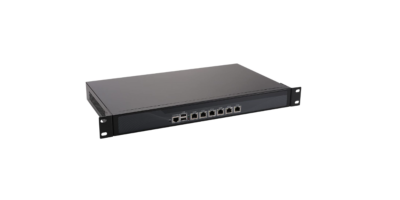Healthcare organizations are increasingly adopting cloud-based services to improve efficiency, reduce costs, and streamline operations. However, with the sensitive nature of medical data and strict regulations such as HIPAA, ensuring the security of cloud infrastructure is crucial for healthcare organizations. In this blog, we will delve into the essential cloud security best practices that healthcare organizations should implement to safeguard sensitive patient information.
The Landscape of Healthcare in the Cloud
Healthcare organizations deal with an immense volume of sensitive data daily. From patient records and medical histories to diagnostic images and treatment plans, the cloud provides a scalable and accessible storage solution for this information. However, the integration of cloud technology introduces new challenges, making it imperative for healthcare providers to prioritize security.
Important Cloud Security Best Practices for Healthcare Organizations
Healthcare organizations should follow these essential cloud security best practices to secure their sensitive data and achieve compliance with regulations such as HIPAA.
1. Data Encryption: Protecting Patient Information at Rest and in Transit
Implementing robust data encryption mechanisms is fundamental to cloud security best practices. Cloud security dictate that data, whether at rest or in transit, should be encrypted. This ensures that even if unauthorized access occurs, the data remains incomprehensible. By employing end-to-end encryption protocols, healthcare organizations can safeguard patient information from potential breaches.
2. Access Control and Identity Management: Limiting Entry Points
Controlling access to sensitive healthcare data is paramount. Cloud security best practices advocate for the implementation of stringent access control measures. This involves employing multi-factor authentication and role-based access control to ensure that only authorized personnel can access specific types of patient information. Proper identity management not only protects against external threats but also mitigates the risk of internal data breaches.
3. Regular Security Audits: Monitoring and Assessing Vulnerabilities
The dynamic nature of cybersecurity threats necessitates continuous monitoring and assessment. Cloud security best practices for healthcare organizations involve conducting regular security audits. This proactive approach allows organizations to identify and address vulnerabilities before they can be exploited. Automated tools and manual assessments play a crucial role in ensuring the robustness of the security infrastructure.
4. Compliance with Industry Regulations: A Legal and Ethical Imperative
Healthcare organizations must adhere to stringent industry regulations such as the Health Insurance Portability and Accountability Act (HIPAA). Cloud security best practices demand a thorough understanding of these regulations and their implications for cloud-based storage and processing of patient data. Compliance not only safeguards against legal repercussions but also reinforces the ethical commitment to patient privacy.
5. Incident Response Planning: Preparing for the Unforeseen
No security system is foolproof, which is why cloud security involve comprehensive incident response planning. Healthcare organizations should have protocols in place to detect, respond to, and recover from security incidents promptly. This includes regular training for staff on recognizing potential threats and a well-defined response plan to mitigate the impact of any security breach.
6. Regular Software Updates: Closing Vulnerability Loopholes
Outdated software can be a significant security risk. Cloud security best practices include regular updates and patch management to address vulnerabilities promptly. Healthcare organizations should prioritize updating both operating systems and third-party applications to minimize the risk of exploitation by malicious entities.
Conclusion
In conclusion, as healthcare organizations increasingly transition to the cloud, the importance of robust security measures cannot be overstated. Cloud security are not just a matter of compliance; they are an ethical obligation to protect the sensitive information of patients who entrust their well-being to healthcare providers. By implementing the cloud security discussed in this blog, healthcare organizations can safeguard patient data and maintain trust with their patients. So, adopt these industry-leading measures to secure your cloud infrastructure and protect your sensitive data today.
If you want cloud security best practices for your healthcare organization, consult with us. We have the expertise and experience to help you safeguard sensitive data and protect your cloud infrastructure, ensuring data integrity. Call us on (877) 220-8774 or email at info@medicalitg.com.
References:
https://thenewstack.io/5-strategies-for-cloud-security-in-healthcare/
https://relevant.software/blog/cloud-security-in-healthcare/
You may also like:
https://medicalitg.com/how-cloud-computing-has-revolutionized-internet-communication/
https://medicalitg.com/tips-for-building-a-robust-healthcare-it-security-strategy/
https://medicalitg.com/top-cybersecurity-solutions-for-healthcare-organizations/










